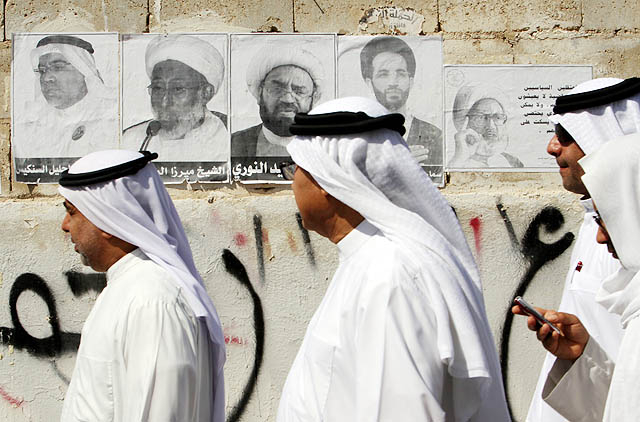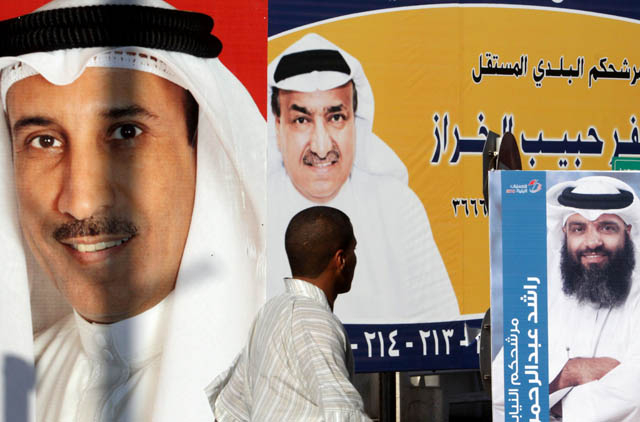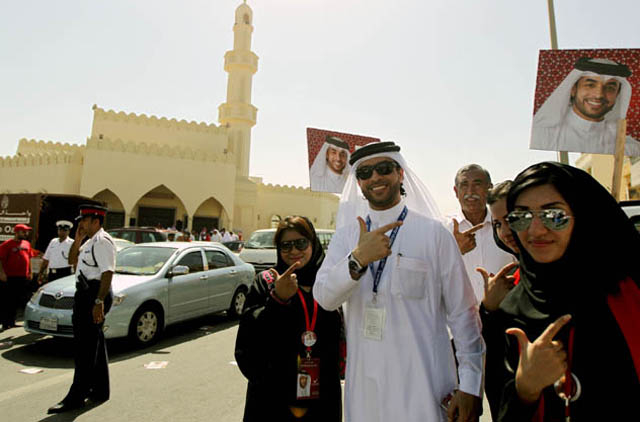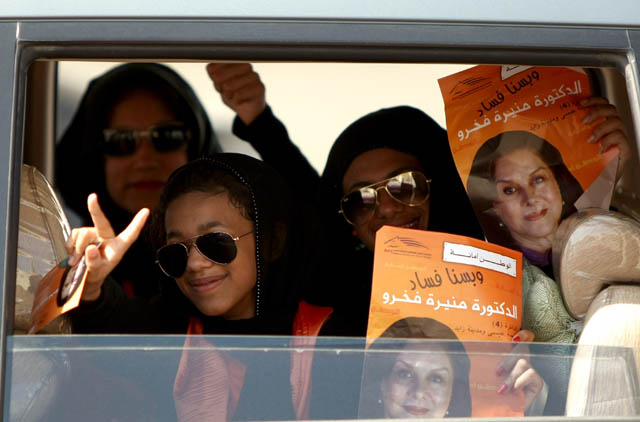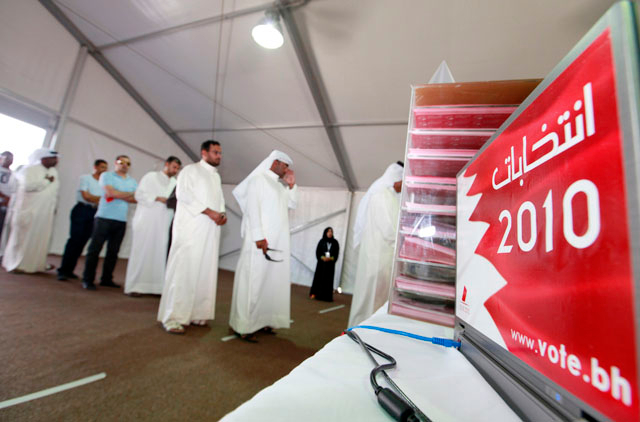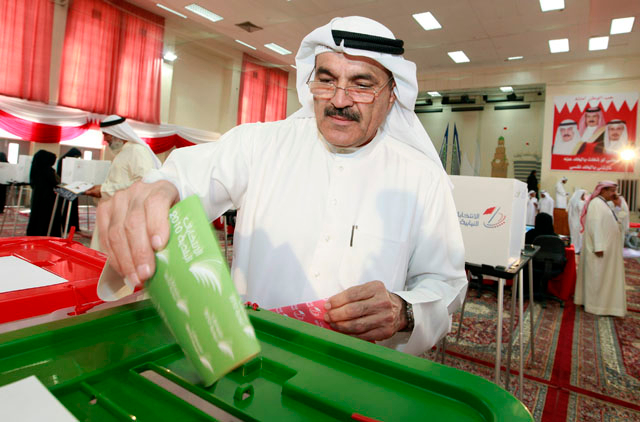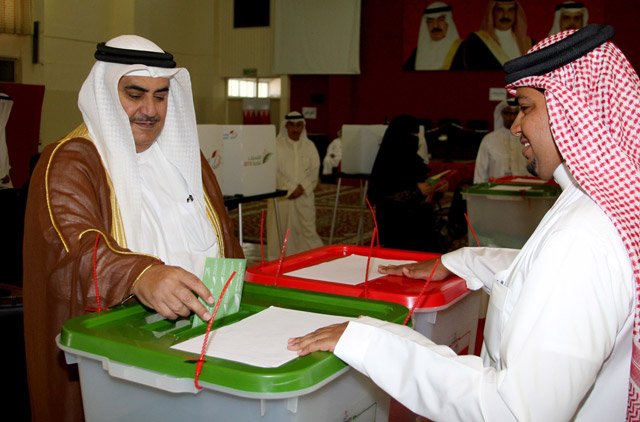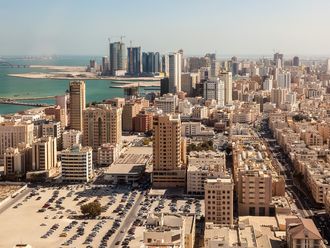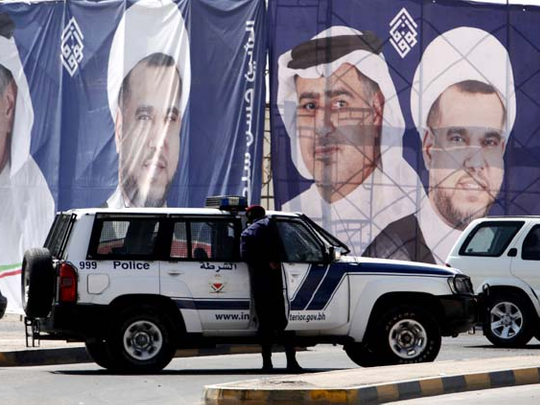
Manama: Bahrain's Shiite-led opposition held on to its 18 seats in elections for the 40-member parliament, according to official results announced Sunday, but fell short of the majority they hoped to win as a show of strength against Sunni rulers.
The leaders of Bahrain have waged a campaign of arrests and intimidation against suspected Shiite opponents since August, claiming they seek to undermine the ruling system and could open the door for Shiite powerhouse Iran to exert influence in the heart of the Arab Gulf.
Shiites in Bahrain say they only seek greater rights and opportunities after being shut out from key decision-making roles in the country.
The Shiite seats went to the main opposition Al Wefaq group. Though it did not win a majority in Saturday's election, it could still forge alliances with liberal parties and others to eventually gain the upper hand in parliament for a symbolic slap to Bahrain's leaders.
In other results, 13 pro-government Sunni candidates won seats, and the other nine contests will head to runoffs on Saturday, according to election officials who announced the outcome on state television. Most of the runoffs are between pro-government candidates.
The Shiites claim there were voting problems, including hundreds of Shiites reportedly blocked from voting.
This could result in challenges to the outcome and complicate hopes of cooling tensions after waves of arrests and street clashes between majority Shiites who claim widespread discrimination and the Sunni leadership seeking to maintain its grip.
In pictures: Bahrain elections
Q&A on Bahrain's elections
Profiles: Who are running in the elections?
The counting of the ballots started shortly after 8pm when the polling stations were closed after 12 hours of voting. Around 318,000 Bahrainis were scheduled to cast ballots on Saturday and voting witnessed long queues, even in the public polling centres where Bahrainis could vote regardless of their constituencies.
Long separate lines of men and women snaked under the scorching heat in the morning and in high humidity in the early evening to cast ballots and elect 35 lawmakers and 38 municipal councilors for the 20110- 2014 terms.
The justice minister on Saturday evening said that he expected the turnout to be at least 67 per cent.
Boycott calls by groups that had splintered from Al Wefaq in 2005 over differences on the merit of elections were largely ignored by Al Wefaq supporters who thronged all the election centres where their candidates were running to ensure their success.
But while Al Wefaq seemed certain of having one more member in the lower chamber than they had in 2006 to 2010, Al Asala and the Islamic Menbar and Al Asala seemed to be on the descending verge after a less-than-expected show of their candidates in the first round.
The National Democratic Action Society "Waad" did not seemingly fare better than it did in 2006 after, and according to initial results, lost one of its three candidates, Sami Al Siyaddi, while the other two, Muneera Fakhroo and Ibrahim Shareef, would move to a second round.
If Al Siyadi's loss is confirmed, Al Wefaq might have trouble to secure the slight majority it wanted to achieve in the new-look lower chamber.
Even with the expected changes in the parliament, and unless Muneera Fakhroo wins her constituency, Lateefa Al Gaood might end up once more as the lone womanly figure.
She made history in 2006 when she became the first woman to sit in an elected parliament in the Gulf Cooperation Council countries after running unopposed. In 2010, no-one signed up to challenge her and she was officially declared winner weeks before the elections.
Allegations abound
Early allegations of voting problems point to possible challenges to the outcome in this key Western ally.
The claims - which include hundreds of Shiites reportedly blocked from voting - could complicate hopes of cooling tensions after waves of arrests and street clashes between majority Shiites who claim widespread discrimination and the Sunni leadership seeking to maintain its grip.
The latest unrest is part of discord that has simmered for decades in tiny Bahrain: Shiites pushing for a greater political voice and the ruling Sunni dynasty trying to protect its control and place among the Sunni Arab clans that dominate the Gulf.
Less than an hour before voting closed on Saturday, the head of the largest Shiite bloc lodged allegations of irregularities.
Shaikh Ali Salman, head of the Al Wefaq party, claimed that at least 890 voters were turned away from polling stations in mostly Shiite areas because their names were not on electoral lists. Even small numbers of votes are crucial in a country with fewer than 319,000 eligible voters.
"This is not the full number," Salman told a news conference. "We expect it to be higher."
Al Wefaq supporters also set up tables outside voting stations to tally up voters who said they backed the party's candidates. The lists will be used for any possible challenges to the official results.
Bahraini officials did not immediately comment on the latest claims of voting troubles.
However, Bahrain's justice minister, Shaikh Khaled Bin Ali Al Khalifa, expected "only a number of infringements" and hailed the voting as fair.
Shiite leaders claim voting districts have been designed to undercut Shiite strength. They also worry about government policies that give citizenship to Sunnis from around the region to boost their ranks.
At a polling station near the causeway connecting Bahrain and Saudi Arabia, many voters arrived driving cars with Saudi plates and headed back over the border after casting their ballots.
With input from agencies


